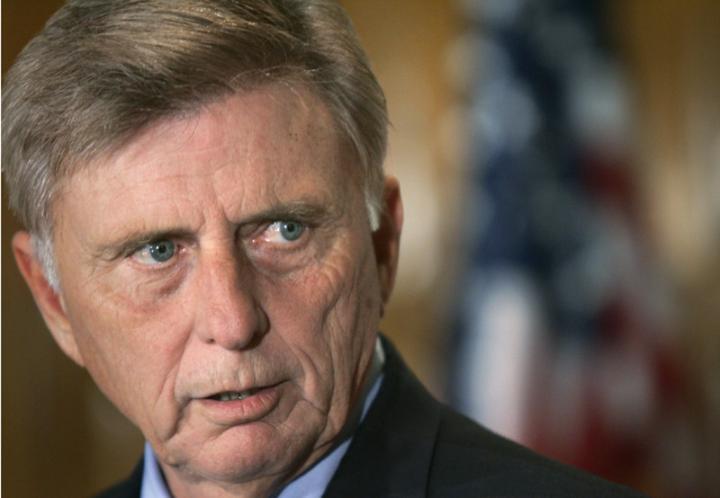Arkansas Gov. Mike Beebe has embarked on an effort to reform the way his state pays for health care through a new initiative intended to rein in runaway costs by rewarding doctors with financial incentives to provide more efficient care. But in order to get there, his approach may incentivize rationing of health care.
In October, the state officially launched the “Health Care Payment Improvement Initiative” (HCPII), a program similar to other state experiments with cost-saving alternatives to the traditional fee-for-service approach. In Arkansas’ program, private insurers are teaming up with Medicaid to harmonize the fee structure for medical care.
Currently, within both pricing structures, the average cost of treating patients for the same conditions can vary wildly. Medicaid typically pays the lowest rates, and private insurance pays the highest ones. The stated goal of the new health initiative is to close the gap between costs and ultimately lower them.
Benefits, Penalties to Doctors
Under Beebe’s (D) plan, Medicaid and private insurers will designate one doctor as the “principal accountable provider” or “quarterback” for each specific “episode” of care. These doctors will receive bonuses if they come in under established cost thresholds and assessed penalties if they exceed them.
Arkansas Rep. Bruce Westerman (R-Hot Springs) expressed concern the program will result in “cookbook” medicine, in which all patients are given the same treatment regardless of their needs. He suggests it will cause medical rationing whenever a doctor comes close to exceeding the cost threshold.
“When you set fees for certain episodes of care and have a quarterback that’s charged with limiting care and he’s in charge of disbursing the money to all the providers, I don’t know what else can happen when you hit the limit,” said Westerman.
Minimal Savings
Westerman says assigning care based on averages isn’t a wise approach.
“Most things in this life you get what you pay for. The new fee charts are based on statistics for the cost of episodes of health care. They arrived at these new fees by statistically averaging what a procedure should cost. I wouldn’t want to be that unfortunate person who is above the average and requires more treatment,” he says.
The HCPII is a pilot program projected to save a few million dollars. Unfortunately, Westerman notes, Arkansas is facing a much larger $400 million shortfall in their Medicaid budget.
“They’ve been propping up the program with one-time money for the last five years. Not too long ago there was a surplus of about $400 million, but it’s now about out of money,” said Westerman. “Medicaid reform will be huge for Arkansas next year. We need to get in there and figure out how to really reform the program instead of just propping it up from year to year.”
Little Hope for Savings
Rep. Stephanie Malone (R-Fort Smith) says many factors contribute to runaway health care costs, including medical malpractice costs and new technologies. She expresses doubts about the HCPII’s use of incentives to limit the growth of health care costs, using an example of a patient who does not follow a doctor’s instruction.
“Should the doctor be held accountable and have their incentives deducted if a patient chose to disregard his doctor’s orders? When it comes to each individual’s health, it is our responsibility to take care of ourselves, and if we choose not to follow the doctor’s orders, that is not anyone else’s fault,” said Malone.
According to Malone, the HCPII approach will only further warp the state’s health care system.
“If a hospital receives incentives under this plan for offering fewer services—such as an abbreviated stay in the hospital—you run the risk of releasing patients who will most likely end back up in the hospital worse than before,” Malone said.
Fee for Service at Fault?
Devon Herrick, a senior fellow and health care economist at the National Center for Policy Analysis, says the Beebe initiative is not unlike other bundled payment initiates being undertaken by Medicare and Medicaid. He predicts it’s unlikely to work.
“This program expects health care providers to adopt a new system that is not in their best interest. Currently, hospitals have an incentive to provide ‘inefficient’ care because they are paid for each episode of care they provide. It wants Arkansas hospitals to provide less care in order to save money for taxpayers. In the private market, suppliers compete for shoppers’ business on the basis of price and quality. In health care, third-party payment induces hospitals and doctors to compete for patients on amenities, not on efficiency,” said Herrick.
Dr. Roger Stark, a physician and health care policy analyst at the Washington Policy Center, views the Arkansas program as just another go at HMOs.
“The original HMOs called the primary care docs ‘gatekeepers.’ Now we have ‘quarterbacks,’ which is a creative term but means the same thing,” said Stark. “We know what the problems will be from the experiences with HMOs in the 1980s and 1990s. Cost can be held down, but only through rationing. Patients and doctors hated the results.”





